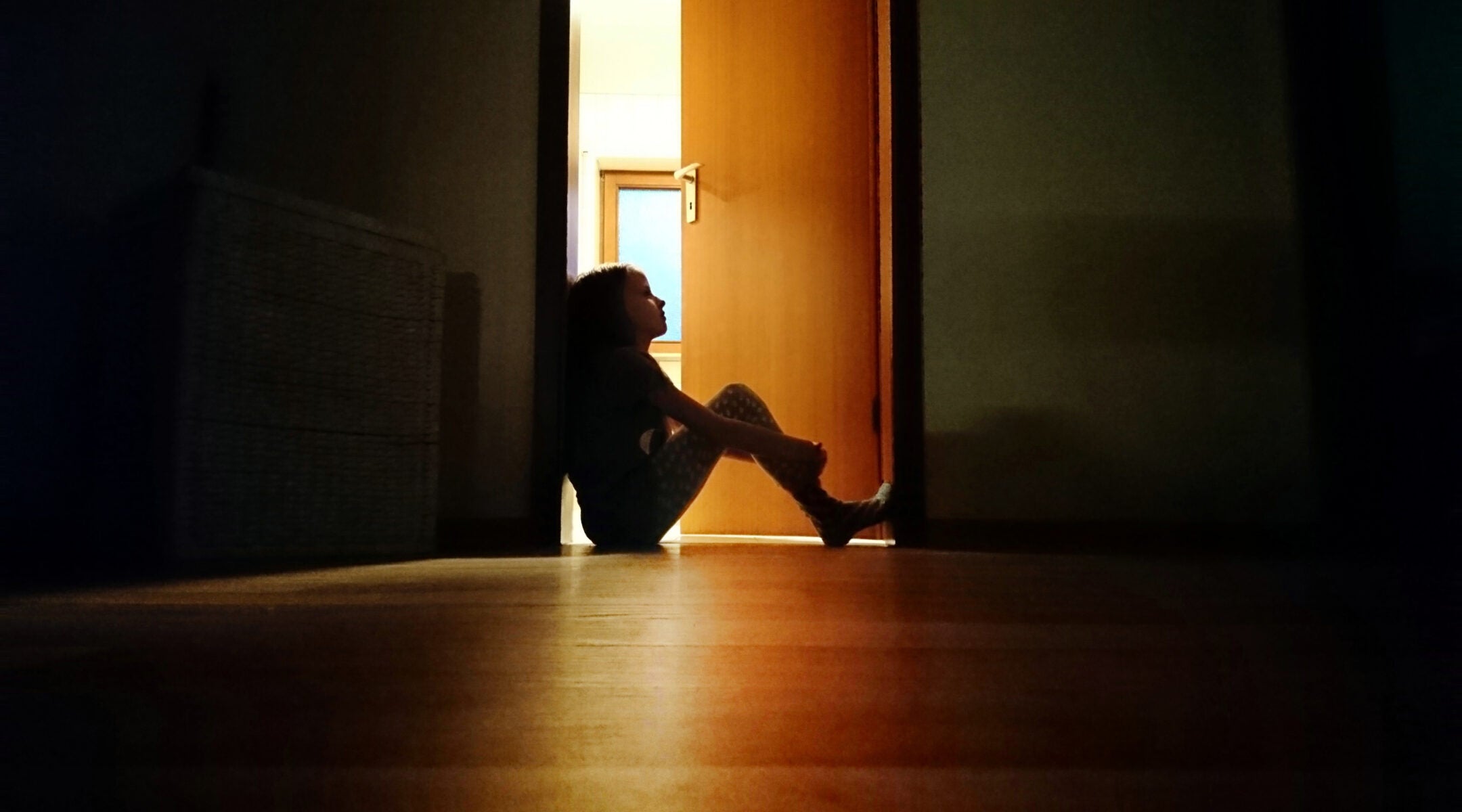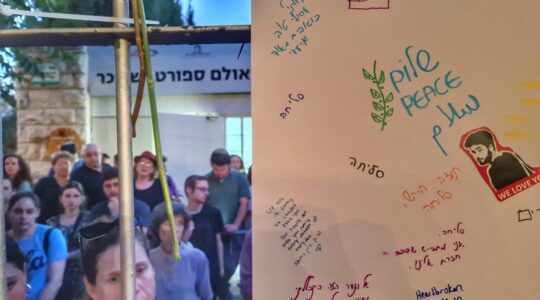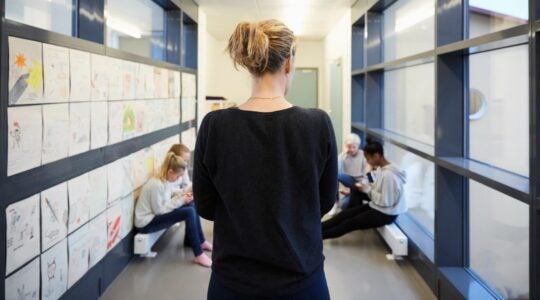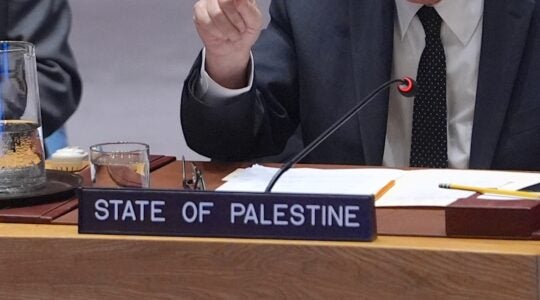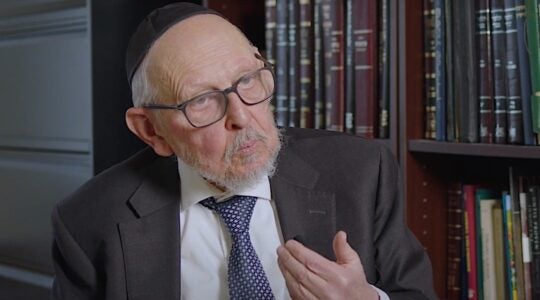The death of any young person at the hands of a terrorist is horrific. The death of a young couple on the verge of getting engaged to be married reverberates further.
The Mishnah tells us that to destroy any life is to destroy a world, but to destroy the lives of two people about to start weaving their individual lives into a shared existence … well, a world is not a large enough metaphor to capture what has been lost. Getting married, even just planning to get married, is one of the most hopeful things a person can do, second only to choosing to raise children.
When I heard about the murders of Sarah Milgrim and Yaron Lischinsky outside the Capital Jewish Museum last week, I thought about Matt Eisenfeld and Sara Duker, also a young couple, also friends of my friends, who were killed together in a Jerusalem bus bombing in 1996. I also thought about Marla Bennett, the young woman murdered alongside eight others in the 2002 Hebrew University bombing.
Like Sarah and Yaron, Marla was on the verge of becoming engaged — to Michael Simon, who is now my husband.
For the four years between 2002 and when we began dating, and into the early years of our relationship, her death was the single most defining event of Michael’s life. His pain was immeasurable. And I suffered for those first few years with the pain of knowing our love was built on a foundation of loss. I struggled with feeling that I’d always be a second choice, a consolation prize, and always imperfect alongside the burnished image of a woman who would never grow old, and, no matter what her faults were in life, would never fall short as a wife or mother.
Now, I find myself wondering whether Michael feels that Yaron got off easy, by dying alongside Sarah, and not having to live the rest of his life in the shadow of her death. I will probably ask Michael, to be honest, as, after all this time, we can talk about Marla’s death without dissolving into puddles of pain, sadness, and anger. I know already that the answer will be no. Living, even in grief and with tremendous pain, is always better.
Our sons, who are 10 and 14, know about Marla. Years ago, we spent a day at the San Diego Zoo with Marla’s parents, who treated them not quite like grandchildren but still like very special people. They are friendly with a girl named for Marla, the daughter of her college roommate. I assume that as our sons grow older, they will understand better the horror of that bombing and others for Israel, for the Jewish people, for Michael, for me, and thus for them. For now, though, she belongs to our family’s prehistory, and their childish naiveté and self-centeredness lead them to think that those years don’t matter very much.
Sometimes I wonder: how did Michael and I do it? How did the pain and confusion contract enough that there was space for a new love to grow from fragile to strong, for a good marriage, a true partnership, two sweet children, and lives devoted to serving others? How is it that we argue now about how to load the dishwasher and not about whether we could ever possibly have a future together, whether Michael could have a future with any woman?
I remember the moment I decided I’d give Michael a chance, staring in the bathroom mirror, a little tipsy, at the Jerusalem restaurant where we had our first date in July 2006. It wasn’t particularly rational, and it was more than a little bit risky to take a chance on this broken man. It got a lot harder before it got easier, but eventually it became impossible to imagine my life without him or his without me. With time, I came to see that we were never building on loss, we were building beside it, its relative size diminishing as our relationship grew.
Now, as Sarah and Yaron’s families bury them and as our devastated community looks for a path forward, I believe my family’s experience can help chip away at the question of where to go from here. I want to say that the answer is hope, that there is always hope, that hope is what brings us forward from pain into possibility, and yes, on some level, that is enough of an answer.
But the thing I’ve discovered about hope that I most want to share right now is that it isn’t always something you can sense or something you can recognize or be certain you have. It doesn’t always look like a diamond ring squirreled away in anticipation of an elaborate proposal, a beautiful wedding, and a delightfully shared future. Sometimes hope looks and feels like plain old foolishness, and the friends who hear about it respond skeptically with worry and warnings.
My story — my family’s story — is a very small piece of a much larger whole, the whole of the Jewish people, and the whole of all humanity, not just existing but persevering. I wouldn’t necessarily recommend it to anyone as something to replicate, were such a thing possible.
And yet, at a time like this, I am standing up to say: let’s not give up, not now or not ever. We must still believe, always believe, that there is potential for something better, even in the wake of the most difficult, most painful loss and even in the hardest moments when all we want is to crawl into a tiny hole and pretend that none of this exists, not evil, not despair, not any of it. We must continue taking chances, risking our hearts and our lives, and we must nurture whatever little glimmer of potential growth we may spot, not because we know what will be — we can’t — but because we need, in a way we can’t explain, to see how it might flower.
Soon we will mark 20 months since Oct. 7, 2023. It has been a grueling, unbearable time. Marla’s murderer was released from prison in exchange for Israeli hostages in January, as were the masterminds behind the bombing that killed Matt and Sara and dozens of others. Last week’s murders shattered whatever sense of safety we American Jews still had. It is tempting now more than ever to allow our grief to define us.
But if I know anything at all, it is this: pain and despair retreat into tzimtzum, into the sort of withdrawal that makes space for creativity, love, and growth, only when we plant our feet, stick our elbows out, and, like fools, insist that it do so. Without that, we won’t be able to see, let alone pursue, whatever tiny possibility of peace there might still be.
JTA has documented Jewish history in real-time for over a century. Keep our journalism strong by joining us in supporting independent, award-winning reporting.

